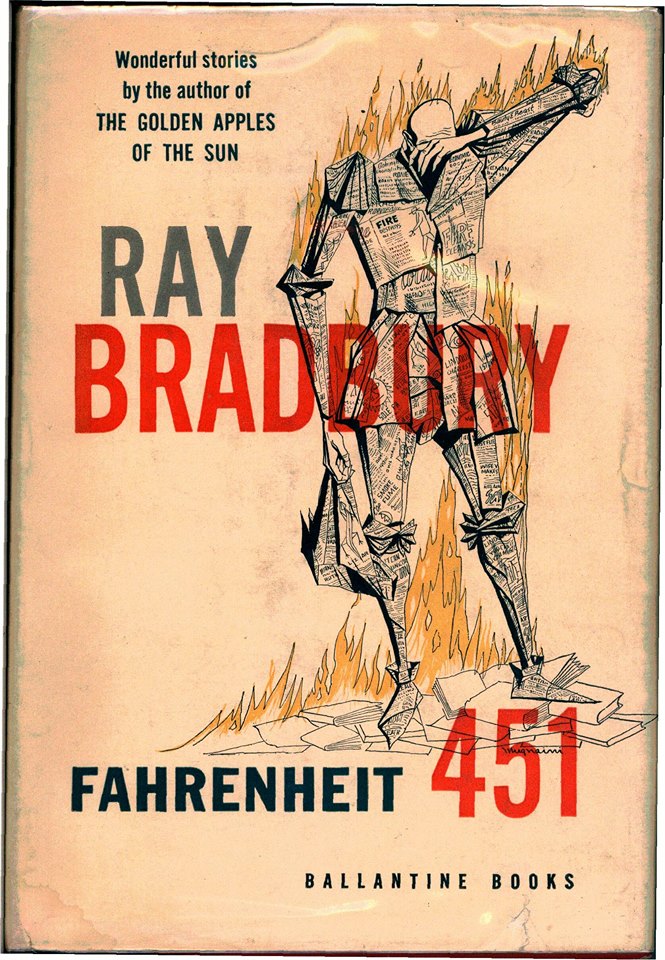(1) BEAR APPARENT. “Ur Sid arrives at Cushing Memorial Library & Archives”. Sharon Lee tells fans a photographer was standing by. (OK, it was actually Curator Jeremy Brett.)
…Since the Bumpy Passage fell out of use many years ago, I created a travel pod so that Ur Sid could make his journey in the style to which he had become accustomed, and packed him carefully in a box. He accompanied nine other boxes containing the Full Run of Lee-and-Miller, Lee, and Miller published works.
Well, today Ur Sid arrived at his new post. Jeremy Brett, Curator of the Science Fiction and Fantasy Research Collection has kindly sent along photographs of this momentous arrival, which are posted below.
Right now, Ur Sid is sharing office space with Curator Brett. Very shortly, he will be transferred to Collections Care so that a proper enclosure for Ur Sid and his belongings, including his travel diary, may be constructed….


(2) CHENGDU TWEETS. [Item by Ersatz Culture.] The official Twitter account of Chengdu, China recently posted some tweets of interest:
- Yesterday there was a video commemorating the one-year anniversary of the Chengdu Worldcon. A bit cheekily, there are a couple of shots from the Glasgow Worldcon around 1:15 in, that aren’t flagged up as such:
- Today there’s a video with Ben Yalow saying how happy he is to be back in Chengdu:
- There’s also a tweet asking for responses about SF experiences in Chengdu; as yet they haven’t had any replies.
Incidentally, these posts followed straight after one criticizing a recent bill before Congress in the U.S. to fund “badmouthing China”, indicating this account seemingly isn’t just for doing local tourism promotion type stuff…

(3) ICON 50 TO BE DELAYED TO 2026. [Item by Michael J. “Orange Mike” Lowrey.] On Friday at the opening ceremonies of ICON 49 in Cedar Rapids, it was announced that ICON 50, originally scheduled for October 2025, has been postponed to 2026, due to problems with money and with volunteer shortages.
This follows the recent announcement that WisCon for 2025 will be a Wisconline, all-online event.
(4) FIRST BITE. Adam Roberts has a funny take on a recent Guardian story:

Or if you prefer your news straight, here’s the link: “Reader stumbles on Dracula’s ancestors in a Dublin library”.
In a Dublin library once frequented by James Joyce and WB Yeats, beneath a turquoise and white domed ceiling and surrounded by oak shelving, Brian Cleary stumbled across something by Dracula author Bram Stoker he believed no living person had ever read.
Cleary, who had taken time off from his job at a maternity hospital after suffering sudden hearing loss, was looking through the Stoker archives at the National Library of Ireland when he came across something strange. In a Dublin Daily Express advert from New Year’s Day 1891 promoting a supplement, one of the items listed was “Gibbett Hill, By Bram Stoker”. He had never heard of it, and went searching for a trace. “It wasn’t something that was Google-able or was in any of the bibliographies,” he said.’
Cleary tracked down the supplement and found Gibbet Hill. “This is a lost story,” he realised. “I don’t think anyone knows about this.” The story follows an unnamed narrator who runs into three children standing by the memorial of a murdered sailor on Gibbet Hill, Surrey, which is also referred to in Dickens’ 1839 novel Nicholas Nickleby.
Together, the four walk to the top of Gibbet Hill. Distracted by the view, the narrator loses sight of the children. He takes a nap among some trees, and wakes to see the children a short distance away, before a snake passes over his feet towards the children, who appear able to communicate with and control the snake. Later, the children attack the narrator. The story culminates with the snake wriggling out of the narrator’s chest, gliding away down the hillside…
(5) LITERARY INCOGNITO. The Week features a list of “Jeff VanderMeer’s 6 favorite books that delve into the unknown”.
In his new sci-fi horror novel, “Absolution,” Jeff VanderMeer returns to the world of 2014’s award-winning “Annihilation,” which launched his Southern Reach Trilogy. Below, the best-selling ‘weird fiction’ author recommends six psychological expeditions into the unknown.
The six-pack includes:
‘A Perfect Spy’ by John le Carré (1986)
“The past is another country” may be a cliché, but not in the hands of my favorite espionage novelist. His masterpiece charts the entanglements, both professional and personal, that bring about the downfall of operative Magnus Pym. A stunning tale of betrayals, redemption, and, ultimately, a compassionate portrayal of a compromised life.
(6) CHARLIE JANE ANDERS ON ELECTION. At the 270 Reasons blog Charlie Jane Anders answers the question “Why Kamala Harris” — “Because we are close to reaching climate benchmarks we can’t come back from”.
Future generations will look back on 2024 as the moment when the United States of America made a defining choice about climate change. This November, we’re either going to renew our commitment to fixing this mess we created, or embrace denial and plunge the world into a nightmarish scenario.
Nobody much is talking about it, but this election feels especially important for a couple of reasons: first, we are dangerously close to reaching some climate benchmarks that we won’t be able to come back from easily, if at all. And second, we are now being faced with daily brutal reminders of the impacts of climate change on our world. As Kamala Harris herself said in a powerful 2023 speech, climate change is here and the effects are in our face everyday.
The good news is, the past few years have seen some real advances toward clean energy and green infrastructure. Tax credits included in the Inflation Reduction Act are helping to make wind and solar power more affordable than non-renewable energy sources, and the subsidies in the bill are creating more jobs in the clean energy sector. But there’s much more work to be done…
And if you scroll down past the end of Anders’ article there is an index to other posts, including several by genre contributors Tomi Adeyemi, George Saunders, Daniel Handler (aka Lemony Snicket), and Beth Revis.
(7) PLEASE NOT TO CALL IT SF. This Washington City Paper interview with Tara Campbell perpetuates the cliché that if it’s well-written it can’t be science fiction: “Crossover Sci-Fi Author Tara Campbell Comes Home With a New Novel”.
WCP: When hearing the phrase “speculative fiction,” most readers will immediately think we’re referring to either science fiction or fantasy, and there are elements of both in your novel. But this work leans strongly in to literary writing, with beautiful, sometimes even lyrical storytelling and far less of the extensive worldbuilding than we’d normally see in the aforementioned genres. How do you approach “speculative literary” writing?
TC: Before I stumbled upon the term “speculative fiction,” I used to say that I write science fiction for people who don’t think they read science fiction. But that was only an approximation of what I was doing, and I’m glad that more people are discovering the depth and breadth of fantastical writing beyond strict genre definitions.
I love the way “speculative literary” opens up narrative by allowing us to go beyond the bounds of realism to get at emotional truths. If something feels surreal, why not try to capture that cognitive dissonance by portraying it as something palpably unreal? Certain parts of American culture are indeed surreal to me, like our relationship with guns, or our lack of reckoning with history, or our income inequality, and those areas of disconnect came out indirectly in stories about sneaking needles striking us everywhere from home to school to church, or screaming ropes howling in the darkest corner of a dusty barn, or sword fighting robots protecting the bunkers of the uber-wealthy….
(8) SECOND, JUST SAY, ‘I FORGOT’. [Item by Bruce D. Arthurs.] An interesting piece about a project to bring obsolete software back from the dead, using Thomas Disch’s Amnesia computer game from 1986. “Remembering ‘Amnesia’: Digital preservationists reboot classic video game” at Yale News.
You wake up naked in a hotel room. You don’t recall who you are or how you got there. Your clothes are missing. Someone knocks on the door.
So begins “Amnesia,” a text-only video game released in 1986, in which players inhabit the perspective of a man experiencing memory loss while staying in midtown Manhattan at the fictional Sunderland Hotel. Players must negotiate a series of puzzles to find much-needed clothes, leave the hotel, and navigate Manhattan’s busy streets. By gathering clues and avoiding innumerable pitfalls, they gradually discover that the protagonist has a fiancée he cannot remember, is being pursued by an assassin, and is wanted for murder in Texas.
A groundbreaking digital work of interactive fiction by the sci-fi novelist Thomas M. Disch, the game anchors “Remembering Amnesia: Rebooting the first computerized novel,” an exhibit on view through March 2 in the Hanke Exhibition Gallery at Sterling Memorial Library.
Drawing on materials from Disch’s archive at the Beinecke Rare Book and Manuscript Library, the exhibit explores the author’s novel attempt to move video games into the realm of literary fiction. It also describes the efforts of the Yale Library’s Digital Preservation unit to preserve the game, originally stored and played on now-obsolete hardware, and restore it to life.
The revived version of “Amnesia” is available to play on three workstations — two located just outside the exhibit space and one in Bass Library — that emulate a mid-1980s computing environment….
(9) FIVE IS RIGHT OUT. Well, not always. PRINT Magazine’s Steven Heller interviews Arlen Schumer about his latest collection of essays on the famed TV show: The Five Themes of The Twilight Zone, in “The Daily Heller: Your Next Stop, The Twilight Zone”.
You declare in your new title that five themes exist in Serling’s portfolio. What are they?
With this book, I was inspired to curate what I thought were the best episodes of “The Twilight Zone,” collected in a framework that would separate my “greatest hits” of the series into distinct themes that would encompass the diversity—and similarity—of the best episodes by Serling and company. Of course, one can argue that there are more than just five themes of “The Twilight Zone” that the breadth of its 156 episodes would suggest, but I decided rather quickly on the following five, almost as if they suggested themselves: “Science and Superstition,” “Suburban Nightmares,” “A Question of Identity,” “Obsolete Man,” and “The Time Element.” (Of the five, “Suburban Nightmares” is the only one I coined that does not have a direct “Twilight Zone” connection; bonus points for recognizing that “A Question of Identity” comes from dialogue spoken by the protagonist of [the show’s] debut episode, “Where is Everybody?”)

(10) MEMORY LANE.
[Written by John King Tarpinian.]
Anniversary, October 19, 1953 — Fahrenheit 451
By John King Tarpinian: On this day in history one of the most read science fiction novels was published. One of the few, if not only, novels of sci-fi on a majority of middle and high school reading lists.
Fahrenheit 451 is one of three books that as a young man made me think about stuff outside of my comfortable life. The other two were Dalton Trumbo’s Johnny Got His Gun and Robert Heinlein’s Stranger in a Strange Land, the three making up a trio of books that woke up my little brain.
Fahrenheit 451 was made into a movie by the French director, François Truffaut. It was his first movie in color and his only English-language film. Remember the French guy in Close Encounters of the Third Kind? That was Truffaut.
Flatscreen TVs were in this book. Bluetooth was in this book. Most people know that Ray never drove a car, remember that in the book Clarisse was killed by a speeding car. Montag was a brand of paper; Faber was a brand of pencil. Beatty was named for the lion tamer, Clyde Beatty.
Bradbury’s book rails against censorship, in any form.
Lastly, Ray’s headstone reads “Author of Fahrenheit 451.”
(Use this link to see a parade of Fahrenheit 451 book covers from over the years.)

(11) COMICS SECTION.
- Brewster Rockit wisdom out of the mouths of babes.
- Frank and Ernest admire someone who keeps current.
- Dog Eat Doug has a fan of reality viewing.
(12) READING THE ROOMS. For the “Every Town Deserves a Library” episode of the Our Opinions Are Correct podcast, hosts Annalee Newitz and Charlie Jane Anders are joined by Ken Liu.
Science fiction and fantasy are full of wondrous libraries containing everything from powerful artifacts to some dang good reads. How does the idealized view of libraries in speculative fiction compare with the real-life libraries, which are under attack by would-be censors and culture warriors? Also, we talk to award-winning author Ken Liu about his brand new translation of the classic Daoist text, the Dao De Jing.
(13) JOY WILLIAMS Q&A. [Item by Steven French.] Joy Williams on why fiction should be ‘uncanny’ (and on reading Baba Yaga stories as a child) in the Guardian.
For many years, you’ve written about the climate emergency and environmental destruction. I wonder if your thinking about how to represent that in fiction has developed, and where you think it might go?
I’m always trying to convince myself that fiction will rise up and throw away the crutches that have been supporting it for far too long. The comfy story has got to change. It needs to be more uncanny, less personal….
(14) MICHELLE YEOH TREK – MARK YOUR CALENDAR. “’Star Trek: Section 31′ Movie Gets Premiere Date On Paramount+” – Deadline has the story.
Paramount+ has set January 24, 2025 for the premiere of its upcoming movie Star Trek: Section 31, starring Michelle Yeoh in a reprisal of her Star Trek: Discovery role as Emperor Philippa Georgiou.
The announcement was made Saturday during the Star Trek universe panel at New York Comic Con. Yeoh made a video appearance during the panel, which featured cast members Omari Hardwick, Kacey Rohl and Robert Kazinsky, along with executive producer and director Olatunde Osunsanmi.
Star Trek: Section 31 will premiere exclusively Friday, January 24 in the U.S. and international markets where the service is available….
(15) YOU HAVE TO BE CAREFULLY TAUGHT. “As AI takes the helm of decision making, signs of perpetuating historic biases emerge” – the Arizona Mirror overviews the research.
…In a recent study evaluating how chatbots make loan suggestions for mortgage applications, researchers at Pennsylvania’s Lehigh University found something stark: there was clear racial bias at play.
With 6,000 sample loan applications based on data from the 2022 Home Mortgage Disclosure Act, the chatbots recommended denials for more Black applicants than identical white counterparts. They also recommended Black applicants be given higher interest rates, and labeled Black and Hispanic borrowers as “riskier.”
White applicants were 8.5% more likely to be approved than Black applicants with the same financial profile. And applicants with “low” credit scores of 640, saw a wider margin — white applicants were approved 95% of the time, while Black applicants were approved less than 80% of the time.
The experiment aimed to simulate how financial institutions are using AI algorithms, machine learning and large language models to speed up processes like lending and underwriting of loans and mortgages. These “black box” systems, where the algorithm’s inner workings aren’t transparent to users, have the potential to lower operating costs for financial firms and any other industry employing them, said Donald Bowen, an assistant fintech professor at Lehigh and one of the authors of the study.
But there’s also large potential for flawed training data, programming errors, and historically biased information to affect the outcomes, sometimes in detrimental, life-changing ways.
(16) TURNOVER TIME. “Earth’s Flipping Magnetic Field Heard as Sound Is an Unforgettable Horror” – ScienceAlert lets you eavesdrop.
Approximately 41 000 years ago, Earth’s magnetic field briefly reversed during what is known as the Laschamp event. During this time, Earth’s magnetic field weakened significantly—dropping to a minimum of 5% of its current strength—which allowed more cosmic rays to reach Earth’s atmosphere. Scientists at the Technical University of Denmark and the German Research Centre for Geosciences used data from ESA’s Swarm mission, along with other sources, to create a sounded visualisation of the Laschamp event. They mapped the movement of Earth’s magnetic field lines during the event and created a stereo sound version which is what you can hear in the video. The soundscape was made using recordings of natural noises like wood creaking and rocks falling, blending them into familiar and strange, almost alien-like, sounds. The process of transforming the sounds with data is similar to composing music from a score.
(17) DOUG JONES VEHICLE. “’Nosferatu: A Symphony of Horror’ – Doug Jones Stars in Unique Horror Remake [Trailer]” recommended by Bloody Disgusting. (And with a recommendation like that, you know what you’re in for!)
Eight years in the making, director David Lee Fisher’s new take on the horror classic Nosferatu has finally been unleashed, the film now available on Digital through Prime Video….
(18) THE (POD BAY) DOORS OF PERCEPTION. Six years ago someone shared the results of a thought experiment that asked what would happen “If HAL9000 was Amazon.com’s Alexa”.
[Thanks to Chris Barkley, Cat Eldridge, SF Concatenation’s Jonathan Cowie, Bruce D. Arthurs, N., Ersatz Culture, Michael J. “Orange Mike” Lowrey, Steven French, Kathy Sullivan, Teddy Harvia, Mike Kennedy, Andrew Porter, and John King Tarpinian for some of these stories. Title credit belongs to File 770 contributing editor of the day Paul Weimer.]


